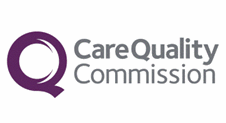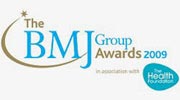Tell us what you think
We welcome your views on our website and invite you to take part in a brief survey when you've finished your visit.
Your response will help us improve the site and the experience we offer to visitors.

Our healthcare standards
We were one of the first private healthcare providers to publish clinical performance and patient reported outcomes on our website.

Spire Washington Hospital latest CQC inspection report: 6 November 2015
Overall rating - Good
Full details of the inspection reportDespite receiving a rating of Good at our last inspection in August 2015, we are committed to continually improving our clinical and service standards to ensure we provide the best possible care. Some specific examples of improvements made in response to CQC feedback are as follows.
|
CQC inspection area |
|
Action taken by Spire Washington Hospital |
|
Safe |
|
The 5 steps to Safer Surgery is embedded in daily practice for all cases and is audited on a monthly basis. A NATSSIPS champion has been appointed for the hospital and every session in each theatre has a NATSSIPS lead nominated to ensure processes are followed at all stages. We have improved the sharing of learning across the hospital and incidents and learning are a standard agenda item at all key hospital and team meetings. A local monthly safety brief is shared with all staff and displayed on all the staff noticeboard. All cleaning and expiry checks are audited by department leads to ensure compliance. Weekly environmental walkabouts by senior management are also conducted to assess the cleanliness of the environment and any maintenance required. The local Medical termination pathway has been revised to incorporate this into the pathway. |
|
Effective |
|
Rated as good and no specific further action required. |
|
Caring |
|
Rated as good and no specific further action required. |
|
Responsive |
|
Rated as good and no specific further action required. |
|
Well-led |
|
To further improve on this culture within the hospital, the Hospital Director attends all monthly departmental meetings. A staff engagement committee has also been formed to allow staff to openly discuss and suggest improvements for hospital. |
Clinical performance
We're proud of the cleanliness of our hospitals and centres. And because we want our patients and GPs to make informed choices, we were one of the first private hospitals to publish clinical performance and patient reported outcomes on our website including information on our rates of MRSA blood infection and clostridium difficile infection. This is just one part of our programme to improve our already high standards of clinical quality and safety.
All Spire hospitals are registered with the Care Quality Commission (CQC) and are required to meet the rigorous standards set for registered hospitals. This includes the quality and safety of treatment, cleanliness of the hospitals, staff recruitment and training and information available to patients. As part of their inspection programme, the CQC asks whether every service they inspect is safe, effective, caring, well-led and responsive to people's needs.
Visit Care Quality Commission website
Every Spire hospital publishes several performance measures including: MRSA blood infections, clostridium difficile infections, wound infections after hip and knee replacement surgery, unplanned returns to theatre and unplanned readmission to hospital.
MRSA blood infections
MRSA is a type of bacteria that is resistant to some antibiotics. A healthy person can carry MRSA on their skin and it won't harm them. But if MRSA gets into the blood stream of a weaker person, perhaps if they have had surgery or are recovering from an illness, it can cause infection.
MRSA can be treated with a range of different antibiotics in line with national UK guidelines.
The rate of MRSA infection is measured in a standard way across all UK hospitals. It is measured by dividing the number of cases of MRSA blood infection by the total number of days that all of our patients have been in hospital, called the number of bed days.
MRSA bloodstream infections
MRSA infection rates at Spire hospitals are extremely low
|
||||
| 0 | Spire Washington Hospital | NHS Hospitals (average)* |
* NHS hospitals typically face additional challenges as they admit emergency patients via A&E who cannot be screened before admission.
MRSA bloodstream infection (also called MRSA bacteraemia) is the most serious type of MRSA infection. Hospitals in England send data to the Health Protection Agency on confirmed MRSA bloodstream infections. The figures published here do not include the numbers of people colonised with MRSA (where MRSA is carried naturally in the nostrils or on the skin) or superficial infections (where the MRSA infection is limited to the skin and does not enter the body).
How do we keep our MRSA rates so low?
- Most rooms are single occupancy
- We train all staff in exceptional hand hygiene
- We employ our own teams of cleaners, not outside companies
- We screen all high-risk patients
- Operating theatres use filtered air for major orthopaedic operations
The data for each Spire hospital relates to reported MRSA bacteraemia across all Spire hospitals. NHS data taken from Public Health England.
Clostridium difficile
Clostridium difficile is a type of bacteria that can cause severe and frequent diarrhoea, abdominal pain and fever. In some cases, it can cause a life-threatening inflammation of the bowel. This is known as clostridium difficile associated disease or CDAD for short. In mild cases of CDAD, no specific treatment is required, although any antibiotic treatment may be changed or stopped. More severe cases require treatment with additional antibiotics.
The rate of CDAD infection is measured in a standard way across all our hospitals. It is measured by dividing the number of cases of CDAD by the total number of days that all of our patients have been in hospital (called the number of bed days).
Clostridium difficile infection
Clostridium difficile infection rates at Spire hospitals are negligible
|
||||
| 0 | Spire Washington Hospital | NHS Hospitals (average)* |
*Patients with more complex needs requiring longer lengths of stay at NHS hospitals are likely to increase clostridium difficile rates.
How do we keep our CDAD rate low?
- Appropriate use of antibiotics
- Most rooms are single occupancy
- We train all staff in exceptional hand hygiene
- We employ our own teams of cleaners, not outside companies
The data for each Spire hospital relates to clostridium difficile infection across all Spire hospitals. NHS data taken from Public Health England.
Wound infection
Hip and knee replacement operations are very common procedures and for most people the benefits are great. However, all surgery carries a risk of infection in the wound created by the operation and this is known as surgical site infection. Wound infections can be treated with dressings and/or antibiotics.
The rate of wound infection is measured by dividing the number of cases of infection by the number of hip or knee replacement operations completed by the hospital.
Wound infections
Surgical site infection rates at Spire Hospitals are very low
|
|||||
| 0 | Spire Washington Hospital | NHS Hospitals (Hip replacement average) |
NHS Hospitals (Knee replacement average) |
How do we keep our wound infection rates low?
- Most rooms are single occupancy
- We train all Spire Healthcare staff in exceptional hand hygiene
- Patients mobilise as soon as possible to speed recovery
- Operating theatres use filtered air for joint replacement operations
The data for each Spire hospital relates to surgical site infections reported by that hospital during 2018 (where this infection was identified when the patient was an inpatient or following a readmission to that hospital). NHS surveillance rates for surgical site infections (hip and knee replacement 2013 – 2018) are taken from Public Health England.
Returns to theatre
A return to theatre is when a patient has surgery and needs to return to theatre for an unplanned procedure during the same stay at the hospital.
We measure the rate of returns to theatre in a standard way across all hospitals, by dividing the number of returns to theatre by the number of procedures we have performed.
In 2018, 0.12% of patients required an unplanned return to theatre for further treatment before they were discharged home from Spire Washington Hospital.
Unplanned returns to theatre
Unplanned return to theatre rates at Spire Hospitals are low.
How do we keep our return to theatre rates so low?
- All treatment is delivered by a consultant on the General Medical Council's Specialist Register
- Every patient undergoes comprehensive assessment prior to surgery
- Every hospital has a dedicated post-operative recovery area
Unplanned readmission
Occasionally, you might need to return for additional treatment following your stay in hospital. Although this is sometimes unavoidable, our good discharge planning and the clear health information we provide helps to minimise the likelihood of this occurring.
An unplanned re-admission is when a patient is re-admitted to the hospital within 31 days of being discharged. The reason for the second admission should be related to the first.
We calculate the rate of unplanned readmission's by dividing the number of readmission's by the number of patients we have discharged from the hospital.
In 2018, 0.28% of patients required unplanned readmission for further treatment within 31 days of their discharge from Spire Washington Hospital.
Unplanned readmission's
Patients at Spire Hospitals are, on average, at low risk of requiring a readmission for further treatment / return to theatre for further treatment.
How do we keep our unplanned readmission rates so low?
- Every patient has an individual discharge assessment
- By providing information to support a speedy recovery
- By referring to external services where it will help recovery
- By providing GP's with prompt and comprehensive information
Patient satisfaction
96% of patients would recommend Spire Washington Hospital to their family and friends following their treatment (based on patient satisfaction data from 2018).
If you have any questions or would like more detailed information, please contact our hospital director.








